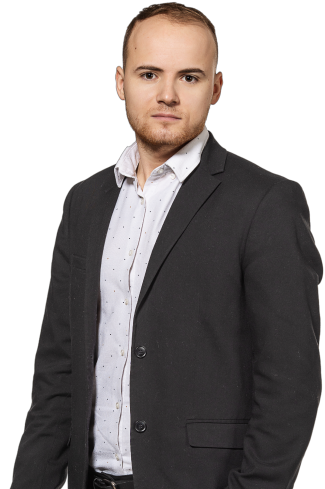REASONS TO PICK US
Protection of intellectual property
The large-scale development of contemporary society highlights both the objects of the material world and the results of intellectual activity that do not have a physical manifestation.
Currently, any objects which are products that were created by one or another person are considered as intellectual property and should be protected by the Civil Code of the Russian Federation (namely article 1250 of the Civil Code of the Russian Federation).
Types of intellectual rights
Protection of each type of right for intellectual property has its nuances that are important to consider. They depend on the product, which is an object of other people's work.
Article 1225 of the Civil Code of the Russian Federation contains a detailed list of objects accepted as intellectual property. Only those products that are specified in the list here are entitled to legal protection.
There are the following types of intellectual rights:
- Copyright. Protects the creation of scientific, literary or artistic work, databases and programs developed for computing machinery (including computers).
- Patent law. The objects of intellectual property include inventions and useful models.
- The neighboring right includes performance rights, broadcasting rights, phonograms, etc.
- Means of personalization includes service marks, trade names and brand attributes.
- Other. This category includes other objects, including know-how, breeding achievements, etc.
A right holder is a person who is the legal owner of the exclusive right to use a product of intellectual activity.
The right to intellectual property should be promptly registered because without this the object will not be subject to legal protection.
The protection of exclusive rights and its stages
There are two main stages in the procedure for protecting intellectual property rights. The stages are preventive and restorative justice.
Preventive stage. At this stage, the right holder should record his ownership of the exclusive right to the object of the result of intellectual activity. If the object requires registration, the right holder needs to prepare a package of documents and appeal to the Russian Federal Service for Intellectual Property.
If the object does not need to be registered, the right holder is free in the method of proof that he owns the exclusive right. For example, to enshrine the rights to a computer program an employer needs to delegate tasks with the program parameters to your employee according to the established procedure by checking his job description and then save the fulfillment of phases using electronic tools that allow setting the dates of creation (transfer of stages), for example, using CRM systems.
Restorative justice stage. It is a stage when the violation is committed against the exclusive rights of the copyright holder. For example, the trademark owner found out that the trademark that belonged to him was used selling goods of third parties and they did not receive authorization. Or the person who created the invention found out that the drawings were stolen and now the invention is being produced by a large corporation. Whatever the violation may be the first stage of the restorative justice stage, in any case, will be the determining of the fact of the violation.
Different methods are used for the recording of violations. Among them are the implementation of a test purchase and photo and video shooting, notarization of the content of the site, and others. After the recording of the violation of the exclusive rights of the right holder, in certain cases, it requires respect for the compulsory complaint procedure. It applied if the parties to the dispute are legal entities and individual entrepreneurs (according to paragraph 5.1 of article 1252 of the Civil Code of the Russian Federation). A complaint can also be sent in other cases, this may help to understand the position of the other party before the judicial proceedings or resolve the conflict without applying to the judicial authorities. Only after the end of the period to respond to the claim (30 days), the right holder needs to apply to the court. When filing a lawsuit, the plaintiff collects evidence of both that he has exclusive right and the fact of its violation. The court to which it is necessary to apply depends on the nature of the relationship as a consequence of that, cases on the protection of exclusive rights can be considered both by a court of general jurisdiction (primarily if the parties of the disputes are natural persons) and by arbitration courts (if the parties of the dispute are legal entities or individual entrepreneurs ), as well as by the Intellectual Property Rights Court (clause 3 of the Resolution of Plenum of the Supreme Court of the Russian Federation No. 10 from April 23, 2019).
The requirements that may be made to the court when filing a lawsuit depend both on the type of the violated exclusive right and on the goals that the plaintiff wants to achieve. For example, you can demand recognition of the right to a useful model or prove that you are the author of a literary work.
An important right of the plaintiff is also the option for enforcement from the violator of exclusive rights compensation in the amount of 10,000 to 5,000,000 rubles (article 1301 of the Civil Code of the Russian Federation).
A particular challenge in cases for the protection of the intellectual rights of natural persons and legal entities is the need for responsive and responsible work at each stage and the calculation of every possible scenario and the knowledge of the most relevant judicial practice. Without the assistance of highly qualified lawyers, it is extremely difficult to win in such cases.
We are the Tsentralny Okrug Law Firm. We have over 15 years of experience in the settlement of the most complex disputes. We are recognized experts in the area of services on the protection of intellectual rights.
Author is Dmitry Biryukov

